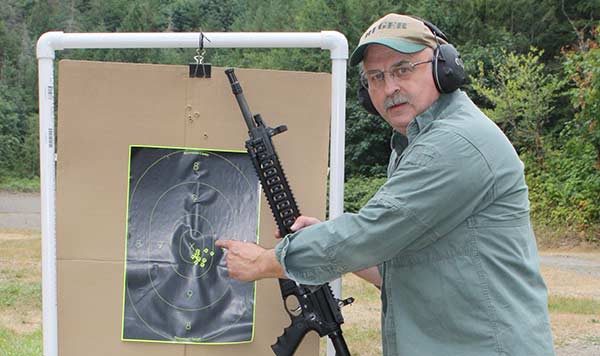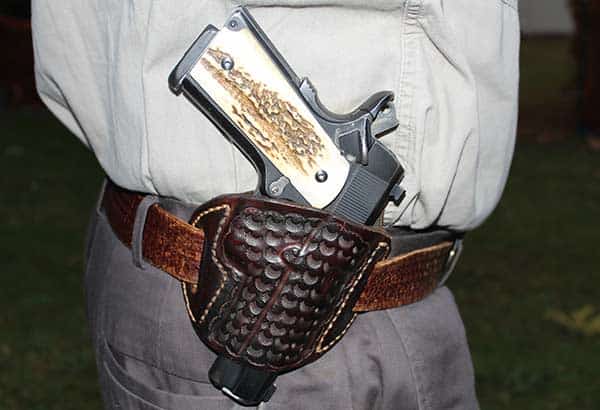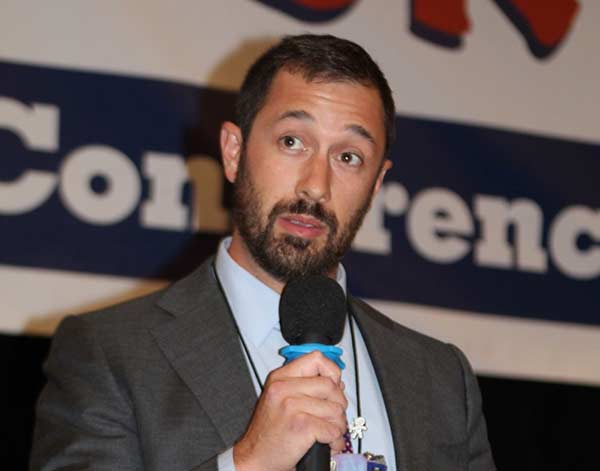Unanswered Questions
A Madman Opens Fire, Nobody Fires Back
Something horrible happened in Maine last month, and many people are still talking about it because even at this late date, there remain a fair number of questions about mass killer Robert Card and details which began emerging within days of his despicable act.
At this writing, at least one of the businesses which became crime scenes had a sign posted at the front door which read, “We kindly ask that you refrain from bringing firearms in this building and we would appreciate it if you left them in your vehicle. Please keep our atmosphere family friendly.” The Crime Prevention Research Center revealed this detail.
Family friendliness took a powder when the killer walked through the door. Such signs discouraging the carry of defensive firearms tell me the establishment, a) isn’t interested in my patronage, b) is a place I’ll avoid.
I’m not about to discuss Maine’s “use-of-force” statute. That’s my friend and colleague Massad Ayoob’s department; I’ve known him for decades, and he’s very good at it. Just for the sake of disclosure, here’s what Maine statute says about the use of force:
§108. Physical force in defense of a person
2. A person is justified in using deadly force upon another person:
A. When the person reasonably believes it necessary and reasonably believes such other person is:
(1) About to use unlawful, deadly force against the person or a 3rd person; or
(2) Committing or about to commit a kidnapping, robbery or a violation of section 253, subsection 1, paragraph A, against the person or a 3rd person; or [PL 1989, c. 878, Pt. B, §15 (AMD).]
B. When the person reasonably believes:
(1) That such other person has entered or is attempting to enter a dwelling place or has surreptitiously remained within a dwelling place without a license or privilege to do so; and
(2) That deadly force is necessary to prevent the infliction of bodily injury by such other person upon the person or a 3rd person present in the dwelling place; [PL 2007, c. 173, §24 (AMD).]
C. However, a person is not justified in using deadly force as provided in paragraph A if:
(1) With the intent to cause physical harm to another, the person provokes such other person to use unlawful deadly force against anyone;
(2) The person knows that the person against whom the unlawful deadly force is directed intentionally and unlawfully provoked the use of such force; or
(3) The person knows that the person or a 3rd person can, with complete safety:
(a) Retreat from the encounter, except that the person or the 3rd person is not required to retreat if the person or the 3rd person is in the person’s dwelling place and was not the initial aggressor;
(b) Surrender property to a person asserting a colorable claim of right thereto; or
(c) Comply with a demand that the person abstain from performing an act that the person is not obliged to perform. [PL 2007, c. 173, §24 (AMD).]
The answer to the headline question is simple: Apparently, none of the 18 victims at the two shooting locations was armed. If so, it hasn’t been reported. No rational person wants to shoot another, and it appears the attacks unfolded so fast, most people probably had no time to react or simply could not believe they were suddenly in the middle of murder.
Crass Exploitation
Politicians including President Joe Biden quickly demanded stricter gun control laws. Well, what about that?
Maine has a duty to retreat, according to the Giffords Law Center and FindLaw.com. Maine is a “permitless carry” state. We just eyeballed the state’s use-of-force language dealing specifically with lethal force.
A report in the New Hampshire Bulletin revealed Maine State Rep. Lori Gramlich (D-Old Orchard), identified as a member of the legislature’s “gun safety caucus,” offered this statement:
“I respect that people hunt. But last time I checked, you don’t hunt with an assault weapon – those are not hunting tools, those are weapons of death and weapons of war. And I personally don’t see any reason for those weapons to be on the street in the hands of citizens.”
Maine also has legislative elections. It might be interesting to ask Gramlich about firearms and self-defense when/if she campaigns for another term, along with what she thinks the Second Amendment is all about.
When I wrote news reports about the Maine tragedy, there were references to incidents in other states where law-abiding citizens made the difference.
Only 18 months ago, in May 2022, a legally-armed woman acted quickly and decisively when a man identified as Dennis Butler opened fire on a birthday party in Charleston, West Virginia. Butler was described as having “an extensive criminal history.”
Two months later, in July, 22-year-old armed citizen Elisjsha Dicken fatally shot a would-be mass killer who opened fire at the Greenwood Park mall in Indiana. Dicken fired 10 shots at about 40 yards across a food court, hitting the killer with eight of them, according to WTHR News.
Former House Speaker Newt Gingrich surprised a lot of people when he weighed in on Fox News, telling Sean Hannity, “I think that we’re gonna have to really think through a better method of protecting people. Frankly, in states that have conceal carry and other permits, constitutional carry permits, you have a much more rapid response to these kinds of people who are crazy.” His remarks were quoted by Mediaite.
He continued, noting, “We have to have a greater ability for our citizens to protect themselves because it’s clear that law enforcement comes in after the massacre. But law enforcement’s almost never there to stop the massacre. So, I think we have to think about a whole new strategy because these kinds of people are extraordinarily dangerous, are willing to kill others, have no sense of decency. And frankly, you have to stop them as early as possible to minimize the loss of individual lives.”
Never convince yourself armed intervention cannot make a difference. On the other hand, never presume you can’t get hurt by intervening.
Law Enforcement Knew
Maine law enforcement reportedly knew about the now-deceased mass shooter. According to the Associated Press, Sagadahoc County Sheriff Joel Merry acted quickly after receiving word from the Army Reserve about threats allegedly made by the killer back in the summer. The sheriff sent an advisory to other Maine law enforcement agencies, but evidently never contacted Card. Details like this often have a short shelf life and are soon overshadowed by other parts of the story.
Biden and California Gov. Gavin Newsom called for universal background checks, a 72-hour waiting period, a ban on so-called “assault weapons” and “high-capacity magazines.” Well, lessee: Card reportedly legally bought the rifle used in his rampage back in July, prior to his mental health problems surfacing. A waiting period could not have prevented the crime. He had to have passed a background check. Checkmate on the president.
So, why suggest penalizing law-abiding citizens in and outside of Maine for the acts of a madman? Because too many people want to believe “something” is being done to prevent such mayhem, when the dirty little secret is that all the laws already on the books, including laws against murder, didn’t prevent the Lewiston outrage, and new ones won’t prevent the next one.
Biden, Newsom and the gun prohibition crowd has not, or refuses to, crack the code: Laws impeding good citizens do not stop bad ones from committing crimes.
There was good news in the wake of Maine’s mayhem … in California!
U.S. District Judge John W. Holcomb, a Donald Trump appointee, granted a preliminary injunction in a challenge of two California statutes designed to ban gun shows at the Orange County Fairgrounds, and on other state-owned property. This came in a case filed by the Second Amendment Foundation, California Rifle & Pistol Association, B&L Productions (Crossroads of the West), the Asian Pacific American Gun Owners Association, the Second Amendment Law Center and four private citizens.
By now, the state should have filed an appeal, but Judge Holcomb had this to say in his 30-page ruling: “After reviewing the parties’ extensive briefing and conducting a hearing on the motion, the Court concludes that Plaintiffs have established that they are likely to succeed on the merits of their constitutional claims and that they have satisfied the other requirements for injunctive relief. Accordingly, Plaintiffs’ motion is granted. Defendants are preliminarily enjoined and restrained from enforcing the two state statues at issue.”
Holcomb did his homework on this one, as a careful read of the opinion will confirm. SAF Executive Director Adam Kraut observed, “It is refreshing to see a California court correctly apply the law in a challenge that involves firearms. Judge Holcomb’s opinion catalogues the unconstitutionality of California’s law in an exacting manner, finding it violates the First and Second Amendments, as well as the Equal Protection Clause of the Fourteenth Amendment. The State’s attempt to ban gun shows on state property could not rightfully withstand constitutional scrutiny and we are pleased with the Court’s decision.”
The judge denied a stay requested by the state to allow time for filing an appeal. That came as a surprise. I talked to attorney Don Kilmer, who represented SAF in the case. He called it a “huge victory” and noted the ruling covered all the bases.







